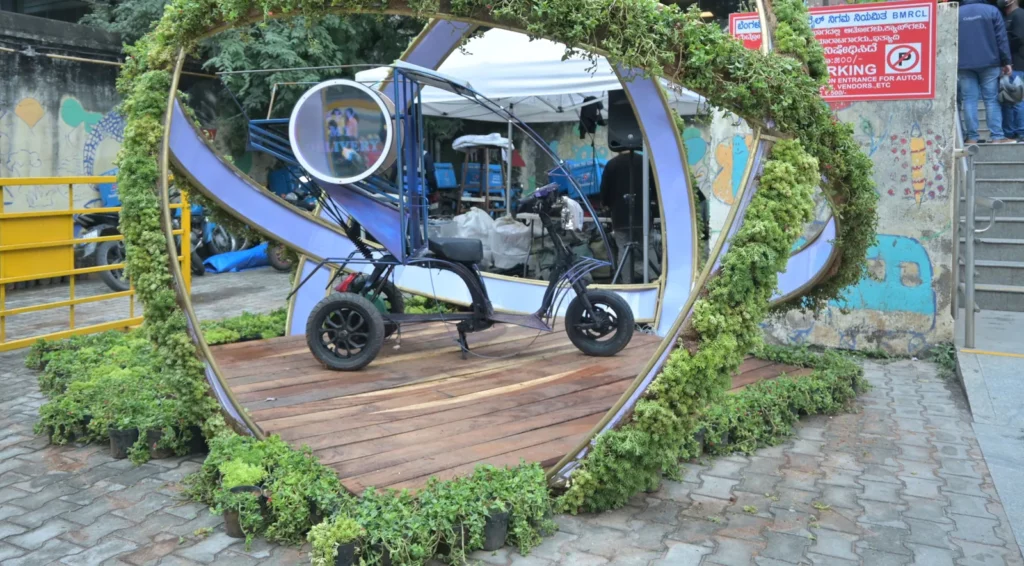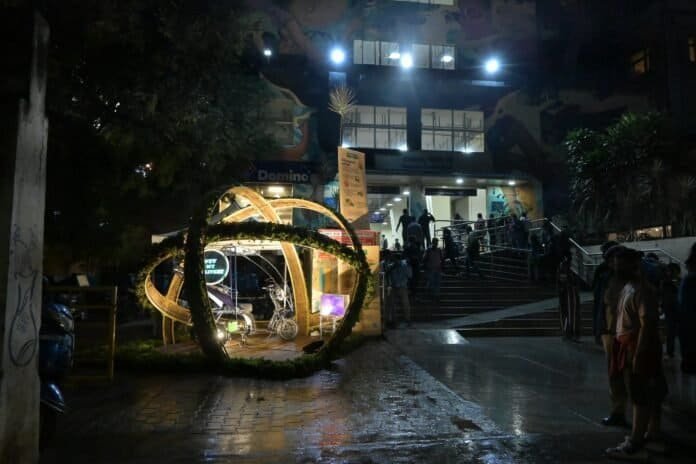This past weekend saw the premiere of a novel solar-powered electric vehicle installation on Bengaluru’s Church Street. Its construction from recycled materials and interactive features, such as a throttle interaction that dispenses treats, represent India’s transition to electric automobiles.
The three-wheeler installation developed as part of the Bengaluru Moving programme combines art and science to get residents of Bengaluru to consider the path that their package deliveries take. It is intended to be a tactile and engaging experience that invites viewers to actually touch and feel an EV.
According to a study by the Stand.earth research organisation, India has last-mile emissions per delivery of roughly 285 gCO2, which is far higher than the weighted average for the entire world of 204 gCO2. Delhi, Mumbai, Kolkata, Bengaluru, and Chennai are just a few of the cities that produce more CO2 from last-mile delivery than whole nations do.
In support of the installation, the Commissioner of Directorate of Urban Land Transport of Government of Karnataka, V Manjula said, “We are very pleased to be supporting #EVmyDelivery initiative and this interactive installation that is raising awareness about last mile emissions resulting from the e-commerce deliveries and the transition to electric 2 and 3-wheel fleets to eliminate the release of tailpipe emissions. The Directorate of Urban Land Transport’s mandate is to further the adoption of sustainable transport in Karnataka and we are happy to support such initiatives that focus on building citizen awareness and action.”

This installation is the ideal illustration of how art can be used to raise social consciousness and enable artists to support ground-breaking notions and ideas. For this particular piece, Bengaluru-based artist Rahul KP (also known as Mechanimal) and Mumbai-based artists Radhika and Madhvi of Workshop Q collaborated. To show how electric vehicles for last-mile delivery are cleaner and more sustainable since they drastically cut tailpipe emissions, they collaborated to build a solar-powered wheeler out of junk.
“Art holds the power to move and motivate people to experience the world differently. It provides a window into an alternate world of possibilities and that is what we have tried to do with this installation. Open up the world of possibilities to consumers who are looking to make informed and sustainable choices,” said Radhika and Madhvi.
The Directorate of Urban Land Transport and Bangalore Metro Rail Corporation worked together to construct the installation. The event aims to bring together various players from the automobile industry, e-commerce, startups, and design studios to discuss the problem of greening the last mile delivery along with Autoguru and Bengaluru Design Week.
Also Read:


